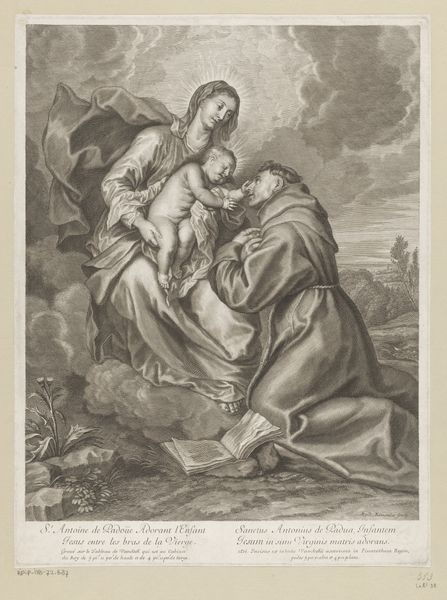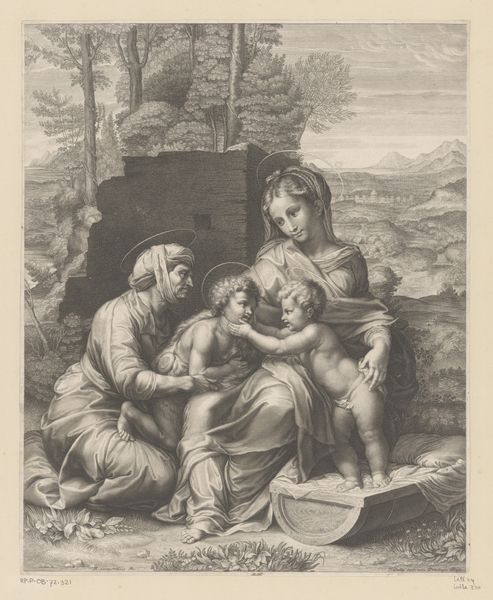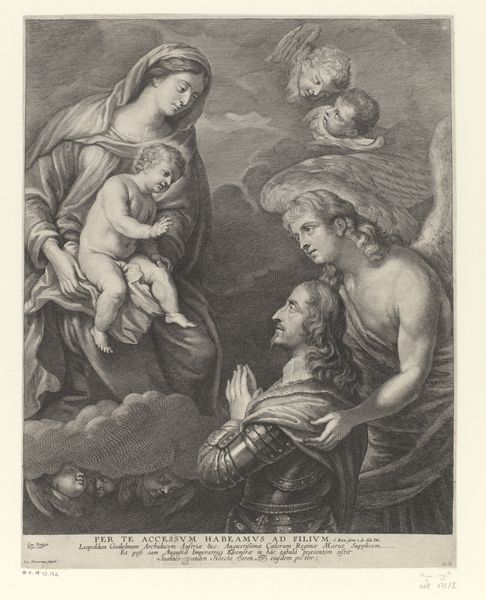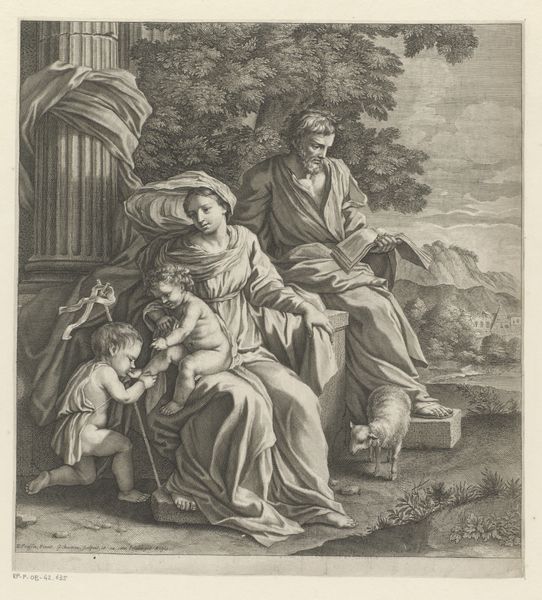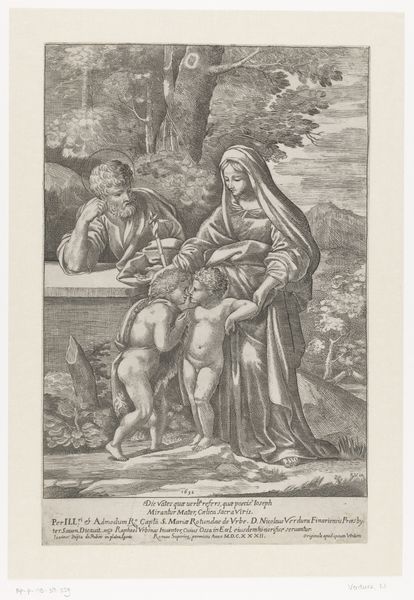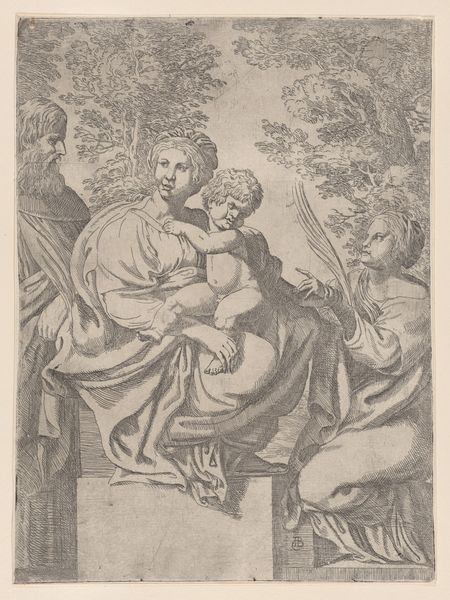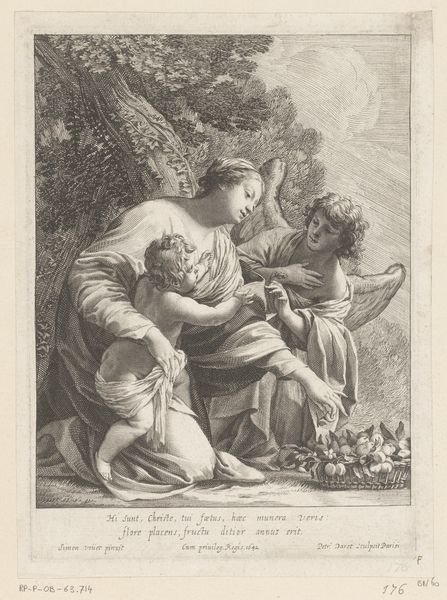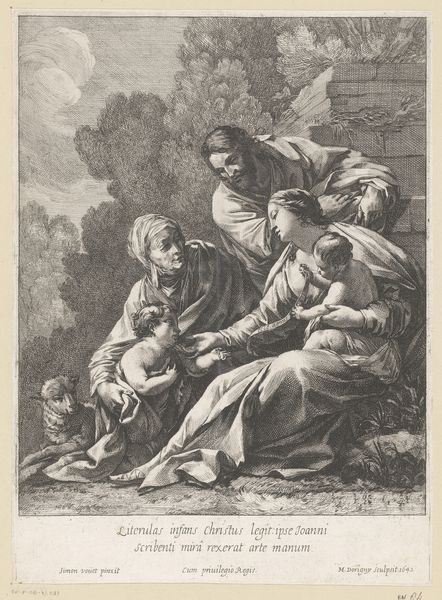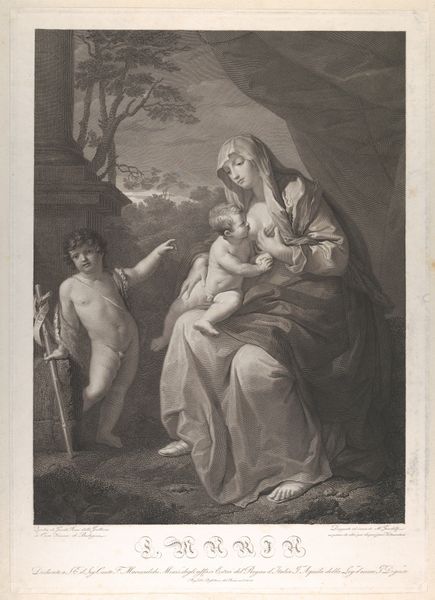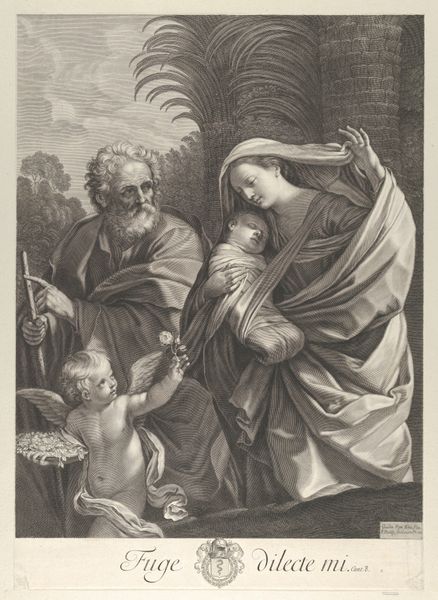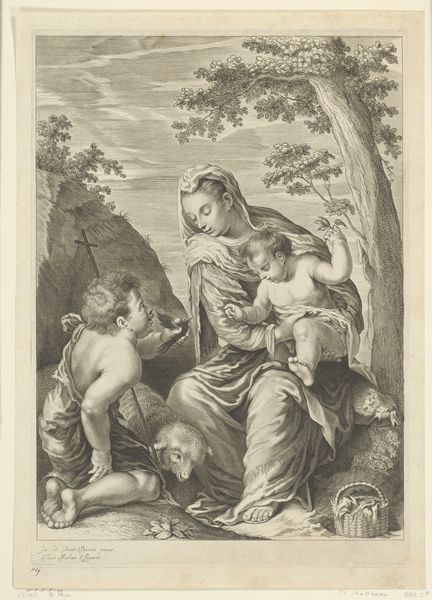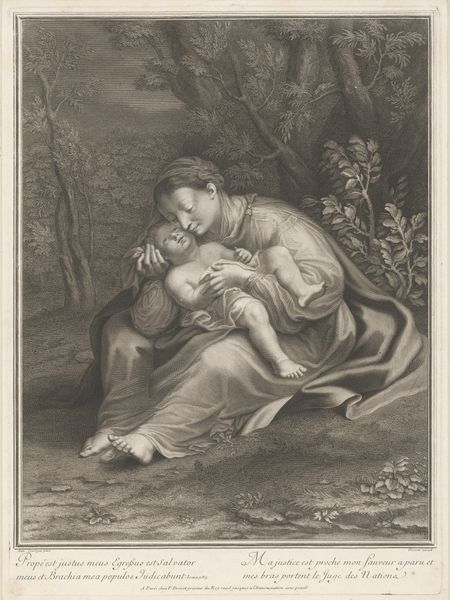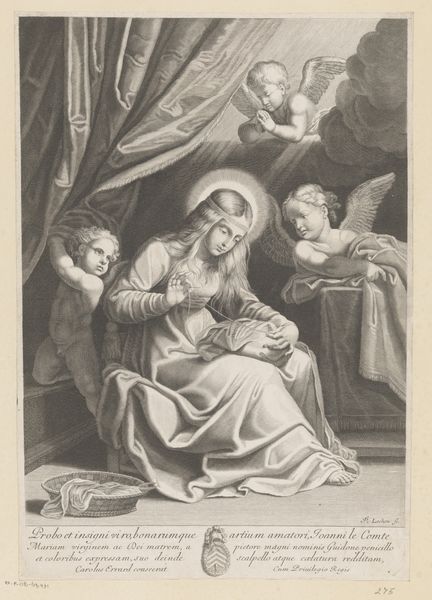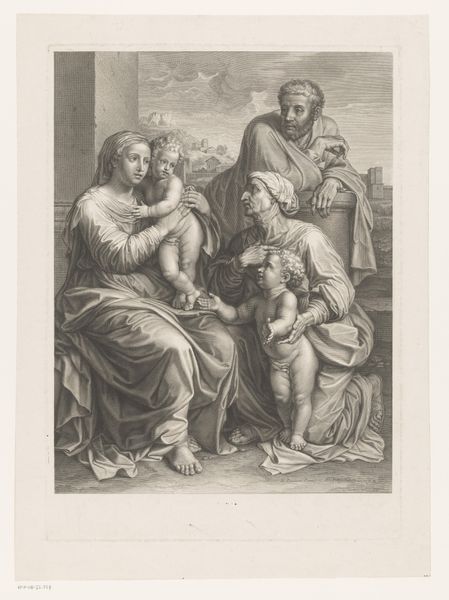
drawing, etching, paper, ink
#
portrait
#
drawing
#
baroque
#
etching
#
landscape
#
figuration
#
paper
#
ink
#
pencil drawing
#
group-portraits
#
history-painting
Dimensions: height 423 mm, width 304 mm
Copyright: Rijks Museum: Open Domain
Editor: This is "Heilige Familie" by Francois de Poilly, dating from 1648 to 1681. It's an etching, and the scene is so serene. What immediately stands out is how contained and peaceful everyone seems. As an art historian, what’s your take on a piece like this? Curator: It's interesting you use the word "contained." That stillness reflects the values promoted by the church during the Counter-Reformation. Look at the way the figures are composed within a pastoral landscape, evoking a sense of harmony and divine order. What role do you think these idealized family images played for viewers in that era? Editor: Hmm, maybe offering a model of ideal family life, rooted in religious piety? A sort of moral instruction. But was that actually how families behaved, or was it more aspirational? Curator: Precisely. That tension between representation and reality is crucial. These images were circulated widely through prints like this one. Consider how such a seemingly simple portrayal actually served powerful institutional purposes. Was it really accessible, or did it create a standard impossible for most families to reach? Editor: I guess seeing it like that really shifts my perspective. It makes you wonder who these images were *really* for, and who was left out. Curator: Exactly. Understanding the public role of art is all about questioning the assumed values and power structures embedded within. Now, what would happen if that piece was shown nowadays? What is the importance of its political imagery nowadays? Editor: I guess this work becomes an artifact that still raises questions about class, family values, and what institutions consider important for us to value. Food for thought, really. Curator: Indeed. And hopefully encourages us to look more critically at all imagery that is presented to us as the ideal of that era.
Comments
No comments
Be the first to comment and join the conversation on the ultimate creative platform.
